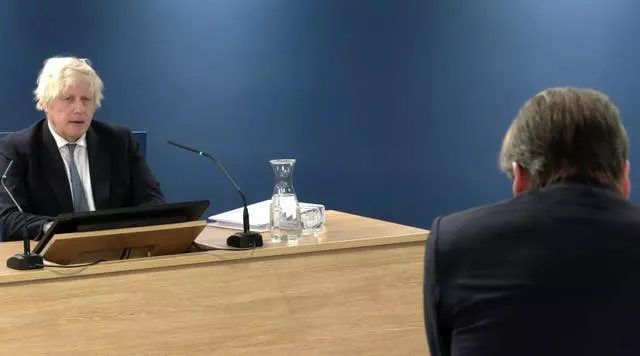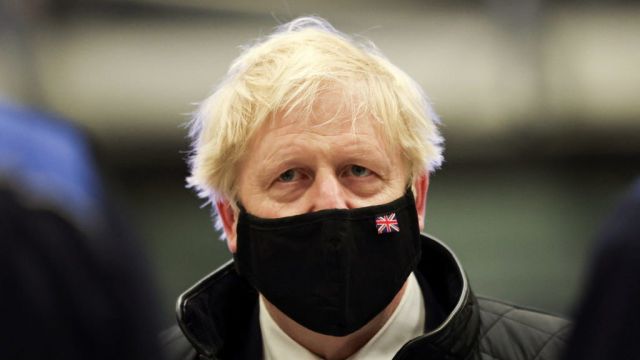Former UK prime minister Boris Johnson has rejected the suggestion there was a “high-handed, incommunicative approach from Westminster” in the pandemic, insisting the UK government had “excellent communications” with the devolved nations.
Mr Johnson did however accept that there had been “blurred” messaging on occasion because of “a succession of press conferences from different parts of the UK”.
Mr Johnson said there had sometimes been “a dissonance in the message” when ideally there would have been “complete coherence”.
On the second day of questioning as part of module two of the UK Covid-19 Inquiry, the former Conservative Party leader said: “I think we had excellent communications across all of the DAs (devolved administrations).
“And I think that the overall performance of the UK in the pandemic as a single entity was remarkable, and every part of the UK played an important part in the effort.
“If you look at it, there was a huge amount of joined up work going on across the whole country.”
Brenda Campbell KC, on behalf of Northern Ireland Covid Bereaved Families for Justice, asked him: “What credence then do you give to the complaints coming from the leaders of the devolved administrations, and I mean across the board, not just in Northern Ireland, of a high-handed, incommunicative approach from Westminster?”
Mr Johnson said: “Well, I don’t recognise that version of events.”
Pressing him on this, Ms Campbell said: “So just to be clear, you reject the idea of a high-handed incommunicative approach by Westminster, as complained about by the devolved administrations?”
Mr Johnson replied: “I do, and I think that we had a huge amount of contact between No 10 and the DAs, between central government and the DAs, and every effort was made to bring along everybody together.”

Mr Johnson added that “occasionally” messages were “being blurred and people were being confused because of a succession of press conferences from different parts of the UK”, although he accepted that he may have been “super sensitive to that”.
He said: “The trouble was that we were, from time to time and we mustn’t exaggerate this, from time to time there was a dissonance in the message.
“I think that when (the) message was so important, it would have been… ideally we would have had complete coherence, because I think sometimes people found it hard to follow, couldn’t see why one area was different from another.”
In his witness statement, the inquiry was told Mr Johnson said: “It’s optically wrong for the UK prime minister to hold regular meetings with other devolved administrations’ ministers.”
On Wednesday, the inquiry heard Mr Johnson was reluctant to meet the leaders of Scotland, Wales and Northern Ireland during the pandemic because he thought it would be like a “mini EU”.
Explaining the remark to the probe on Thursday, he said that one of the considerations was the “risk of pointless political friction and grandstanding because of the well-known opposition of some of the devolved administrations to the government and to avoid necessary leaks”.
He added that he thought the “way to minimise divergence and tensions was to take the temperature down and to have business-like and practical meetings between the Chancellor of the Duchy of Lancaster and the DAs”.
Mr Johnson rejected a suggestion by his former chief of staff Lord Udny-Lister that he had “no real personal relationship” with then-Scottish first minister Nicola Sturgeon.
Taking questions from Claire Mitchell KC, representing Scottish Covid Bereaved, the former prime minister said that he had “no ill will whatsoever” towards Ms Sturgeon.
He said: “When I have talked to her, we have got on very well and had a friendly relationship.”
Asked why Lord Udny-Lister, a close aide, would have had that impression, Mr Johnson said: “Much as I love the SNP, politically there was a certain amount of to-ing and fro-ing between the SNP and me as prime minister.”
Overall, Mr Johnson said he understood the “legitimate, democratic desire” of devolved administrations to have their own approach to public health.
But he added: “In the particular context of a brutal, pitiless pandemic there had to be some way of helping the public with greater unity of messaging.”







